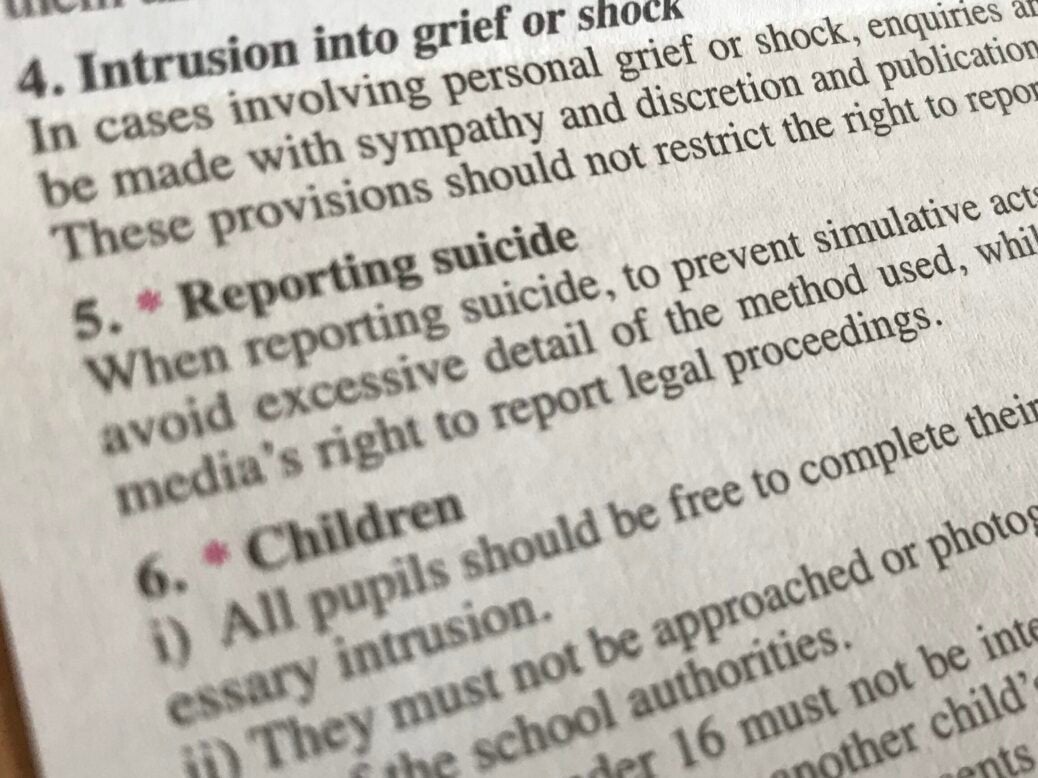
As we pass the tenth anniversary of the publication of the Leveson Report into press standards, this is an important opportunity for IPSO and the press to take stock.
IPSO was established eigjht years ago, born out of the findings of the report. Since our founding, we have worked to promote high editorial standards and provide accountability where there are shortcomings, while recognising the importance of maintaining a free and vigorous press.
The decade has been transformational for UK news organisations. They are more accountable than ever before, both to readers and to the system of regulation overseen by IPSO, and there is increasing recognition that taking regulation seriously is an important step to maintaining readers’ trust in editorial standards and protecting reputation.
Given this, it is perhaps unsurprising that publishers have demonstrated real progress in their engagement with regulation, taking complaints seriously and complying with our rulings and adjudications when required to do so (even when they strongly disagree with the outcome). They have overhauled their in-house editorial compliance processes to ensure they are meeting the standards that IPSO places on dealing with complaints properly and promptly and that journalists have the training they need to comply with IPSO regulation.
Research by the University of Sheffield’s Centre for Freedom of the Media (CFOM), commissioned by IPSO, found that the UK media regulated by IPSO got better at handling complaints and correcting inaccuracies, likely reflecting the improvements in processes and increased resources dedicated to these important functions at many publishers.
The Leveson Report rightly recognised the importance of using regulation to promote practical, common-sense resolution of complaints. By referring complaints initially to publishers for a time-limited period (28 days), we give them a chance to do the right thing, straight away – and this works. In 2021 alone, 205 complaints were resolved at this very first stage. This system also creates clearer accountability for publishers when they should have acted quickly to address a concern, but didn’t.
And we see in responses from people who have engaged in our complaints processes that they get satisfaction. We monitor the overall experience of people seeking redress and whose complaints have been investigated or resolved. When asked if they would recommend IPSO to someone in a similar situation, 83% said they would (2022 figures). We are proud of this positive experience.
But of course, IPSO regulation is not just about complaints handling. We continually monitor editorial standards issues at IPSO-regulated publications, responding in a prompt and proportionate way to issues that are identified, whether they are at individual titles or publishers, or indicative of an issue that is affecting the industry as a whole.
Actions that we have taken in relation to individual publishers have included requiring meetings with senior management to flag concerns, imposing mandatory training sessions, and launching an inquiry by the Complaints Committee. At an industry level, we have published editorial guidance, collected resources for journalists on best practice in different subject-areas, convened in-person engagement sessions with groups affected by individual issues, created bespoke training modules to address issues of concern and produced podcasts that explore in greater depth the issues we consider.
Of course, we know there’s more to do. We are not complacent. We know we that we can continue to improve, to streamline our processes and improve our own ways of working so that we continue drive up standards across the industry, which is facing ever more challenges as it navigates more platforms to reach audiences. By helping publishers to uphold high editorial standards, we help them make the case to readers that quality journalism is worth valuing.
An independent external review of IPSO, conducted by the former civil servant Sir Bill Jeffrey, is in full swing. His report will be published next year and will give us a good platform to build further on our work.
We believe that through our regulatory approach, and by working closely with newspapers, magazines, and digital platforms, we will protect the public when they need us and encourage high standards in the press, whatever the format, channel, or subject of the coverage.
Email pged@pressgazette.co.uk to point out mistakes, provide story tips or send in a letter for publication on our "Letters Page" blog
